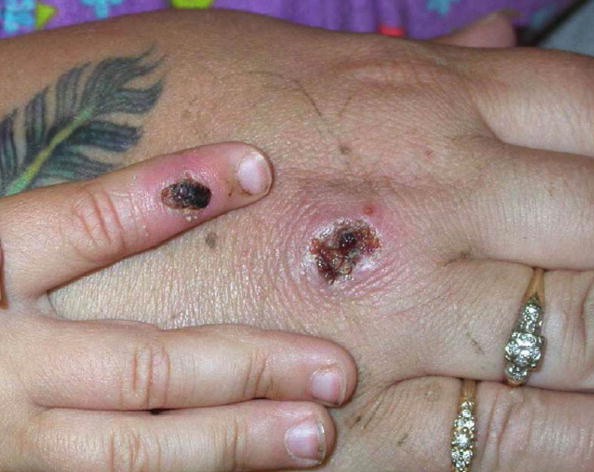In the fruit fly Drosophila, research led by Maria Leptin discovered that autophagy, a stress response mechanism in cells, plays a significant role in wound healing:
.When a wound heals, the process of autophagy is begun and regulated by the protein complex TORC1.
This is a recently found autophagy function and the first evidence that autophagy regulates the development of syncytia (multinucleated cells).
While syncytia are generated during the development of muscles or the placenta, their importance in wound healing and autophagy participation are novel discoveries.
The study, 'Autophagy-mediated plasma membrane removal enhances epithelial syncytia formation,' was published in The EMBO Journal.
Autophagy can heal wounds faster

Researchers from the CECAD Cluster of Excellence for Aging Research, the Center for Molecular Medicine Cologne (CMMC), and the Institute of Genetics studied the role of autophagy in wound healing and the healthy and uninjured epidermis (skin) of the fruit fly Drosophila melanogaster As per ScienceDaily.
Thus, in the process investigated here, autophagy did not digest viruses or bacteria, but rather the cells' cell membrane, resulting in the breakdown of cell borders and the formation of a giant cell with numerous nuclei.
The researchers discovered that autophagy is elevated in the cells around the wound. As a result, the membranes that link the cells are selectively broken down.
A huge, multinucleated cell (syncytium) eventually forms. When genetically induced autophagy in healthy, undamaged skin, they saw the same thing, the membrane between neighboring cells is destroyed, and vast areas of multinucleated syncytia appear across the epidermis, said Parisa Kakanj, the study's first author.
It is remarkable that syncytia development, which the researchers already know occurs in the creation of certain organs, such as muscles or the placenta, also occurs in wound healing.
Previous research on muscle and placenta development found that the establishment of a syncytium provides mechanical stability as well as a strong barrier function to protect tissues from infections.
It is unclear if the mechanism serves comparable activities in wound healing. This will be the focus of future research.
Other benefits from autophagy
Autophagy may have several health benefits. As a result, there is a lot of studies focused on ways to activate this mechanism.
There is special interest in developing strategies to increase autophagy to aid in the treatment of neurodegenerative illnesses, which destroy cells and nervous system connections, as well as techniques to reduce autophagy in cancer patients. As per VeryWell health.
Many individuals are interested in regulating autophagy because of its possible anti-aging characteristics and enhanced metabolic impact.
Cancer is also linked to aberrant autophagy, although not due to genetics.
Autophagy provides cell-protective features that help to avoid the formation of malignancies. However, once a tumor is developed, autophagy is thought to help keep the tumor from being killed by normal cancer-fighting systems in your body.
Potential cancer medicines that block autophagy target the lysosome phase of the process.
Going without eating on and off (intermittently) or for longer lengths of time might activate autophagy.
This is accomplished by decreasing cellular nutrition. Autophagy is then activated, resulting in the production of amino acids that may be utilized as an energy source to sustain cellular activity.
Because most fasting research has been conducted on animals, it is still unknown if fasting for a short period of time or on a regular basis is beneficial or detrimental to people.
It's also unclear if it can be utilized to help people live longer lives or to prevent or treat certain diseases.
Related article: New Cancer Drug Combination Shows Promise
© 2025 NatureWorldNews.com All rights reserved. Do not reproduce without permission.





